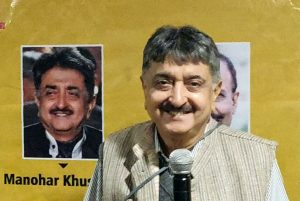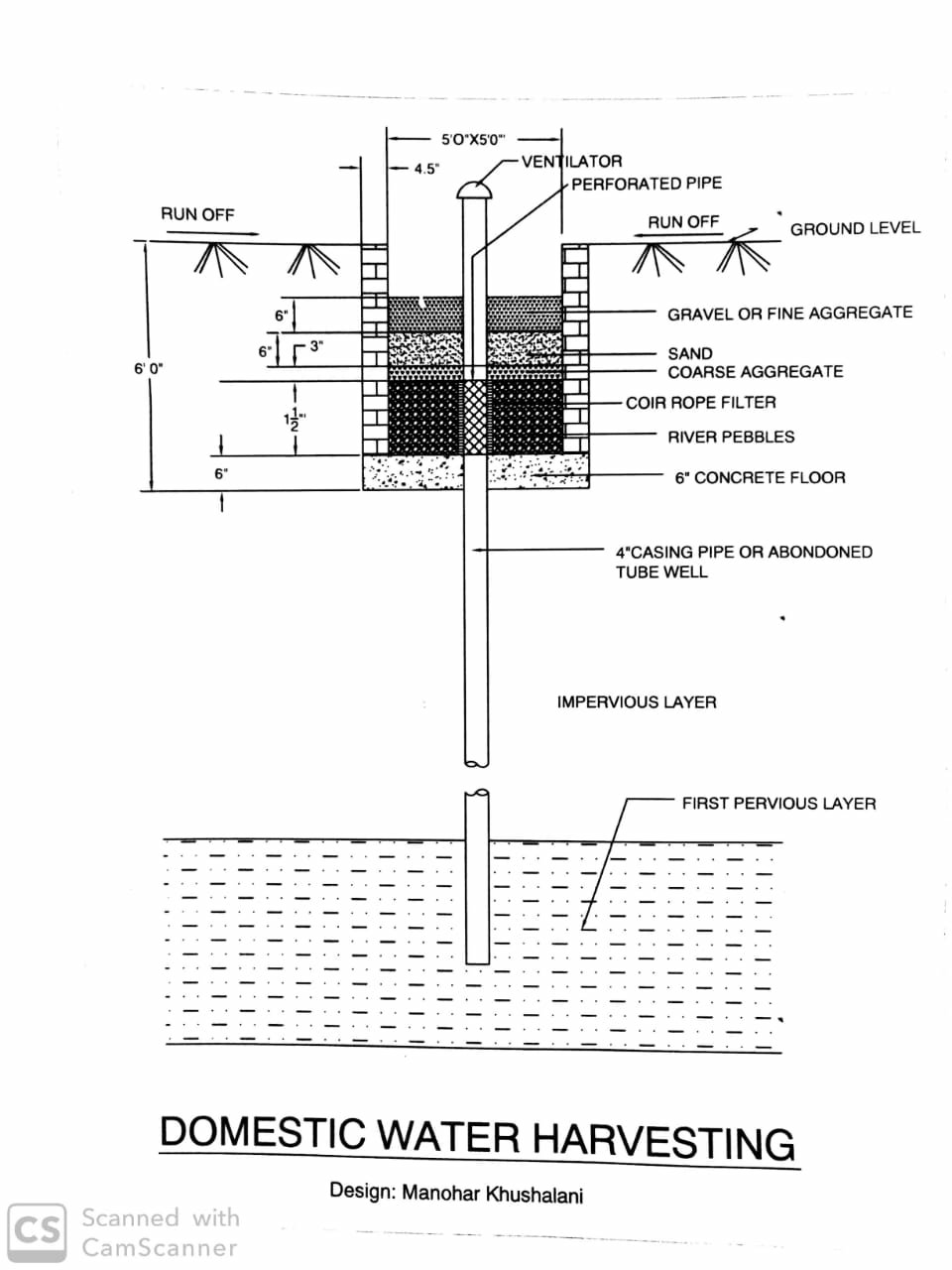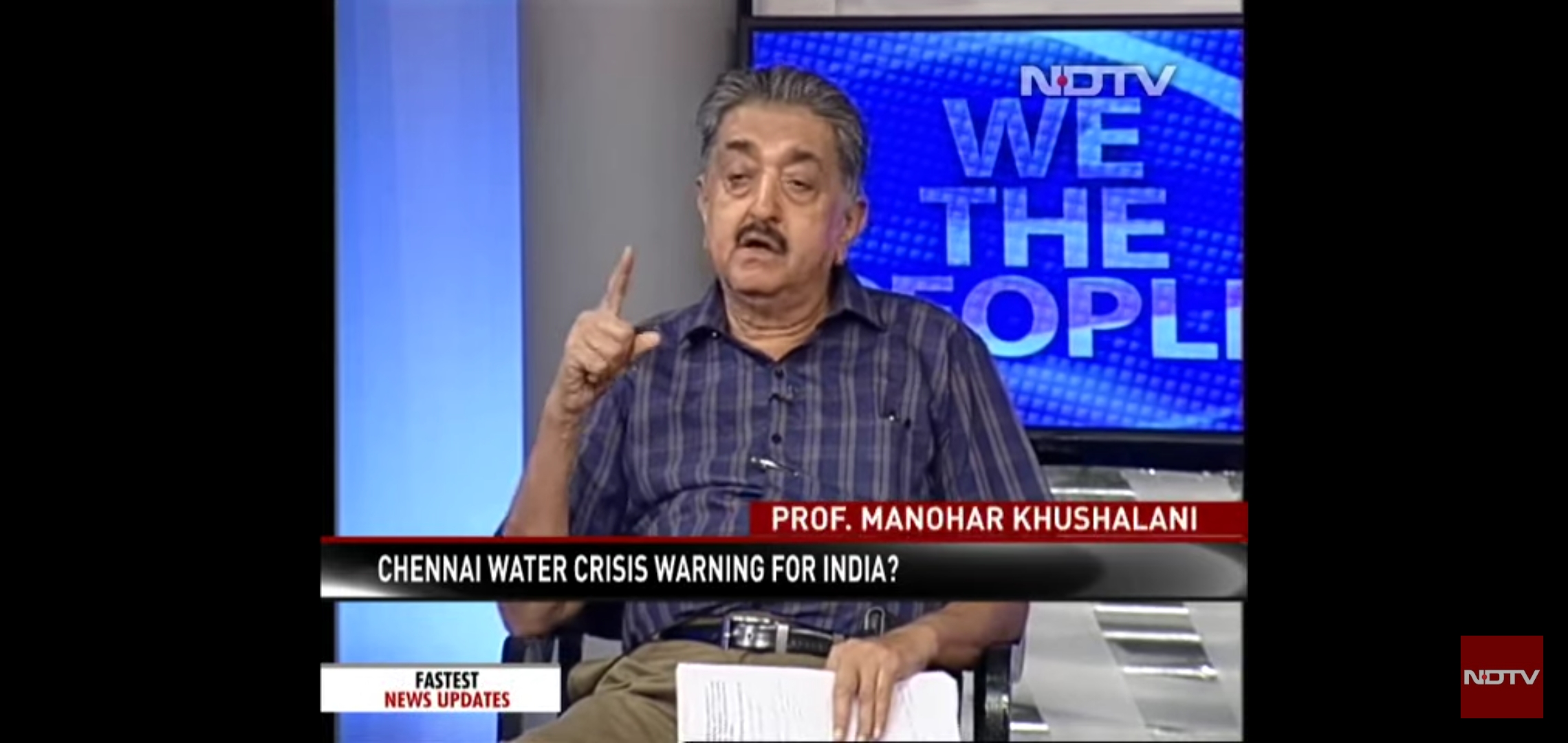
Prof. Manohar Khushalani, Editor, OneVorld, was interviewed extensively by the wire service, ANI, on the looming Water crisis in India. His interview forms part of it’s report circulated to all newspapers and news media in India and abroad.
He advocated water harvesting at community and individual level, quoting his own example, about how he built his own water harvesting in his home, as far back as 2003
No drinking water will be available by 2030 if we don’t conserve now: Report
The government is depending upon the desalination in Chennai which is very expensive also however they forget that the earth is a limited planet and oceans will dry. What will we leave for our children and grandchildren? We may have a lot of money but we cannot ask our children to drink money instead of water. Using ocean water and desalination is not the solution but water harvesting is” said former director of National Water Academy Professor Manohar Khushalani.
“It is a collective responsibility of the government and people of the country to save water and contribute to increasing the groundwater levels,” he added.
Mr Khushalani is presently working as professor in Indraprastha Institute of Information Technology Delhi and has also authored books ”Irrigation Practice and Design in five volumes”. (Published by Oxford & IBH Sponsored by NBT)
“It is not very difficult and expensive to harvest rainwater. One can easily do it commonly in group housing societies or individually. We will just have to make our heart little bigger and more responsible to be thinking about our next generation,” the professor told ANI.
He has made a water harvesting structure inside his residence, in which he has been harvesting rainwater since 2003, helping the raise the groundwater level in his area.
“I made this water harvesting structure in 2003 when my sixty feet deep tube well dried up. I decided to put all rain water collected on my terrace into it. There are two conditions in doing rainwater harvesting. Number one, first rainwater should not go into it, secondly filtered water should go into the ground otherwise it will contaminate the groundwater. The rainwater which is collected on my terrace flows through a pipe which is connected to the bore. After sixty feet, the soil filters the water by itself. The water which falls from the terrace or from height should be harvested but not the water on the roads during rains because it carries lots of dirt with it which may lead to groundwater contamination,” he said.

Mr Khushalani further suggested that the regions which are facing drought should not do farming of sugarcane as it absorbs a lot of groundwater. “By becoming aware today we can avert the danger tomorrow,” he concluded.
To see the original report click on the link below
Manohar Khushalani Recommends Water Harvesting
The ANI report has been featured in a large number of newspapers such as Pioneer, NDTV, First Post, New Indian Express.
https://www.aninews.in/news/national/general-news/no-drinking-water-will-be-available-by-2030-if-we-dont-conserve-now-report20190620014626/
http://www.newindianexpress.com/nation/2019/jun/20/no-drinking-water-will-be-available-by-2030-if-we-dont-conserve-now-1992810.html
http://www.pioneernews.in/21-indian-cities-will-run-out-of-groundwater-by-2020-report
https://www.firstpost.com/india/indias-metro-cities-will-run-out-of-groundwater-in-next-10-yrs-claims-niti-ayog-report-40-populace-will-have-no-access-to-drinking-water-by-2030-6850271.html
https://www.ndtv.com/india-news/21-indian-cities-will-run-out-of-groundwater-by-2020-report-2056129


